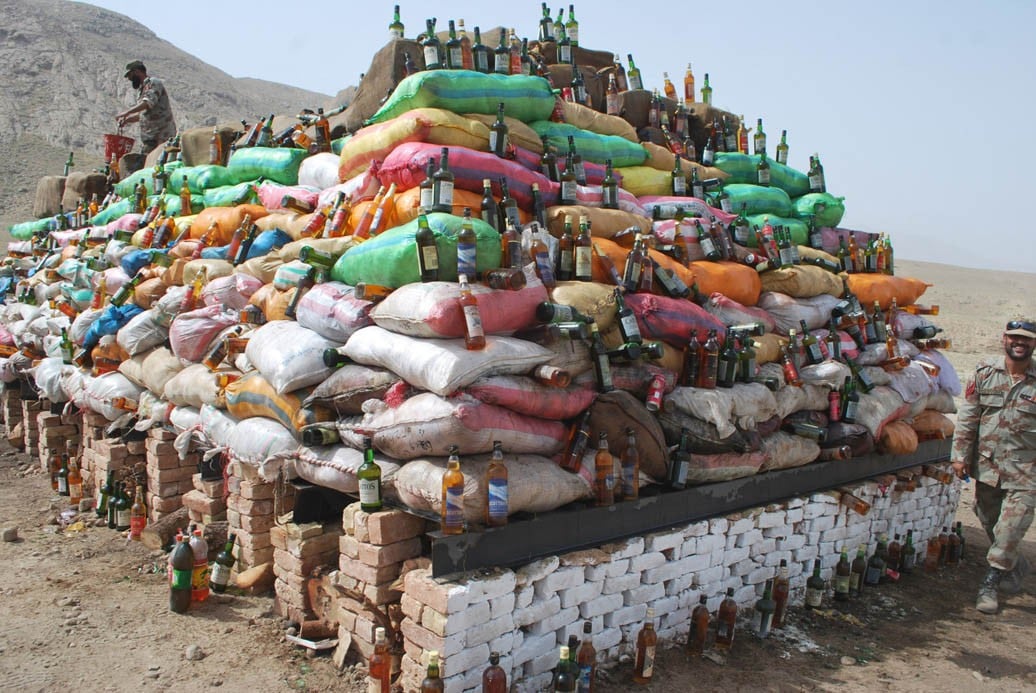
Instead of publicising seized drugs worth billions of rupees, deterrent punishment and the awful consequences of drug abuse should be highlighted to stem drug trade

"Narcotic drugs, valuing billion of rupees in the international market, have been seized in raids carried out across the country," a national enforcement agency frequently claims through its press releases. For example, it recently claimed to have seized narcotic drugs worth Rs12.48 billion. The seized drugs, according to the agency, included: 5.17 tons of charas, 10 kgs of heroin and three kgs of opium, and most of these were going to be smuggled abroad.
While applauding the agency’s performance, one would like to point out that publicity of seized drugs is a ticklish issue. If handled carelessly it could attract immature minds to indulge in smuggling. With this in mind, most of the countries only highlight the awful consequences of drug abuse or deterrent punishments awarded to the smugglers of narcotic drugs.
Narcotics like charas, opium and heroin are easily available in some regions of the country. Charas is produced from cannabis which grows wild in most parts of the country; while opium is illegally cultivated on a large-scale in neighbouring Afghanistan and on little patches of land in some far away regions of our country. Bulk of the opium produced illegally is used for producing illicit substances like morphine or heroin. However, if grown under licence from the UN, opium can be legally used by registered pharmaceutical companies for producing pain reducing drugs. But, production, sale, purchase or movement of illicit drugs, like charas, heroin or opiates, in any form or shape, is illegal, carrying deterrent punishment, including death in many countries, including Saudi Arabia.
It is a common knowledge that in Pakistan many poor people sell their kidneys and other body parts for paltry amounts to repay a loan or for defraying some other unavoidable expenses. When such vulnerable people come to know through media reports that there exists some stuff which could be procured cheaply at home and sold abroad at a fabulously high price, greed and lust for easy money could blind the minds of some of them. Often mafia elements or international gangs of smugglers exploit their deprivations and needs for money and recruit them as carriers for the transportation of drugs across the borders.
Globally, publicity of seized drugs is done in a manner that it deters people from handling them in any manner. Instead of claiming to have seized drugs worth billions, in most of the countries the deterrent punishment awarded to the culprits is publicised or hazards and the awful consequences of drug abuse is highlighted. For instance, reports frequently emanating from Saudi Arabia speak about beheading of drug smugglers, the number of persons executed and their nationalities. Unfortunately, some of the poor souls happen to be Pakistanis. But, in Pakistan, we only hear about seizure of drugs and seldom about the punishment awarded to the arrested smugglers and the likely damaging effect of those drugs on the society, if these were not seized.
Furthermore, quoting price of seized narcotic drugs in the ‘international market’ suggests as if there existed such a market where one could sell or dispose of the unlawful smuggled stuff. But, trade in narcotic drugs is globally prohibited and there does not exist any arrangement to sell such drugs above the counter. No doubt, mafia elements manage to smuggle these drugs and sell them under the counter. But, all countries, including Pakistan, do their best to curb smuggling and arrest the people involved in the illicit preparation or movement of narcotic drugs.
In some cases, the smugglers of narcotic drugs are killed in encounters with the enforcement agencies. For example, recently a section of the media reported that nine drug smugglers, including six Pakistanis and three Iranians, were killed in a gun battle with Iranian forces close to Iran’s order with Pakistan.
Some countries frame charges for smuggling narcotics in a manner that in addition to drug smuggling, these also become instrumental in tackling the menace of terrorism. For instance, it was reported by daily The News (September 6, 2015) that two Pakistanis -- Hameed Chisti, 47, and Wahab Chisti, 49 -- were extradited to the United States in the first week of September, 2015 to face ‘narco terrorism’ charges there. They were accused of smuggling heroin into the United States and unlawfully sell missile launchers. They reportedly conspired to aid a Colombian group -- leftist armed Revolutionary Armed Forces of Colombia -- that Washington had designated as a foreign terrorist organisation. They were flown to the US from Spain, more than a year after their arrest, at American officials’ request.
To avoid ugly situations like this, it was decided in late 1970s not to quote the price of seized narcotic drugs, and Pakistan Narcotics Control Board (which was subsequently transformed into Anti-Narcotics Control Board) had issued instructions to this effect to all enforcement agencies. It appears that the concerned quarters are either ignorant of those instructions or now their focus remains on projecting the imaginary prices of the seized drugs so as to win acclaim and hefty rewards. But, they say that publicity is a double-edged weapon hence it must be handled very carefully.
If the aim is curtailing smuggling, drug demand reduction and image-building, then press statements must be tailored in a way that these help in achieving these objectives without tarnishing the fair name of the country or inducing greedy elements to the illicit trade and get arrested abroad where they face long sentences in jails, if not death in countries like Saudi Arabia and Thailand.